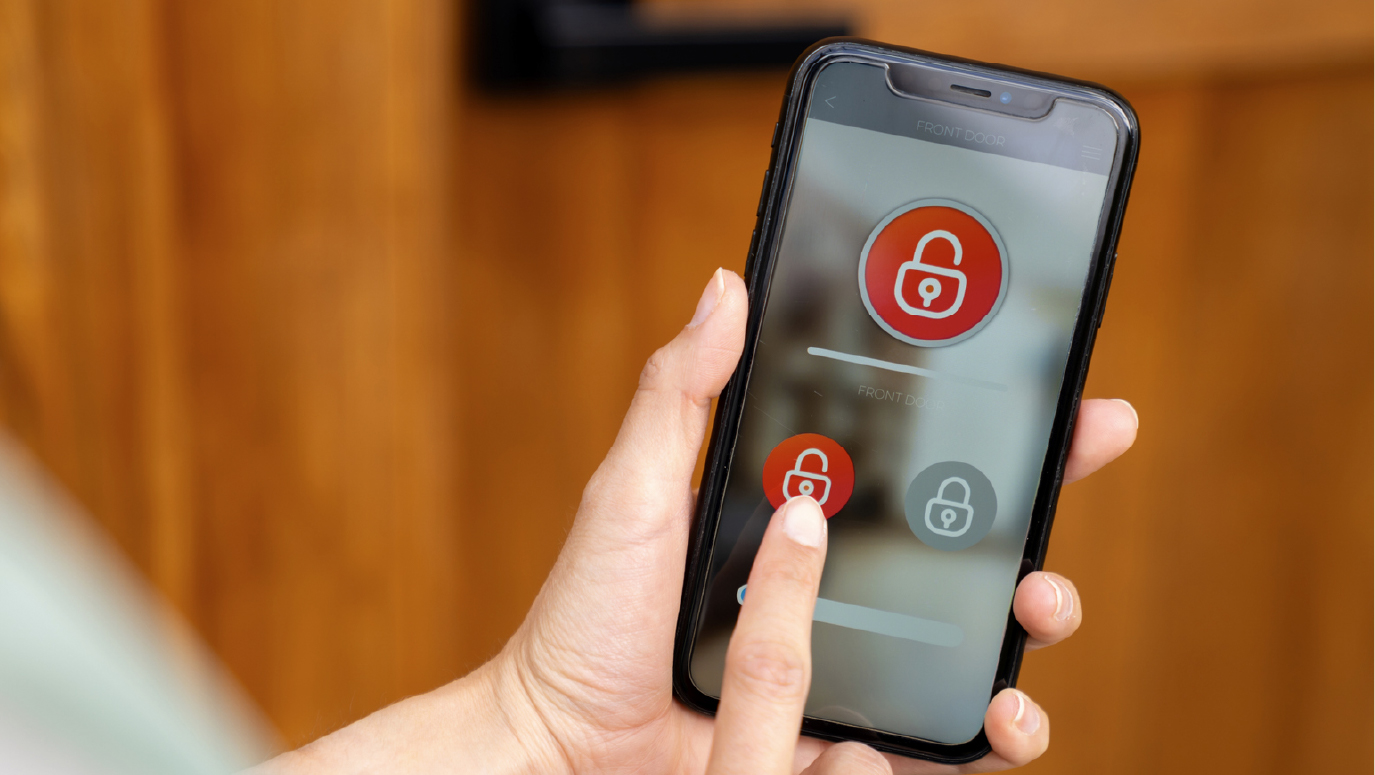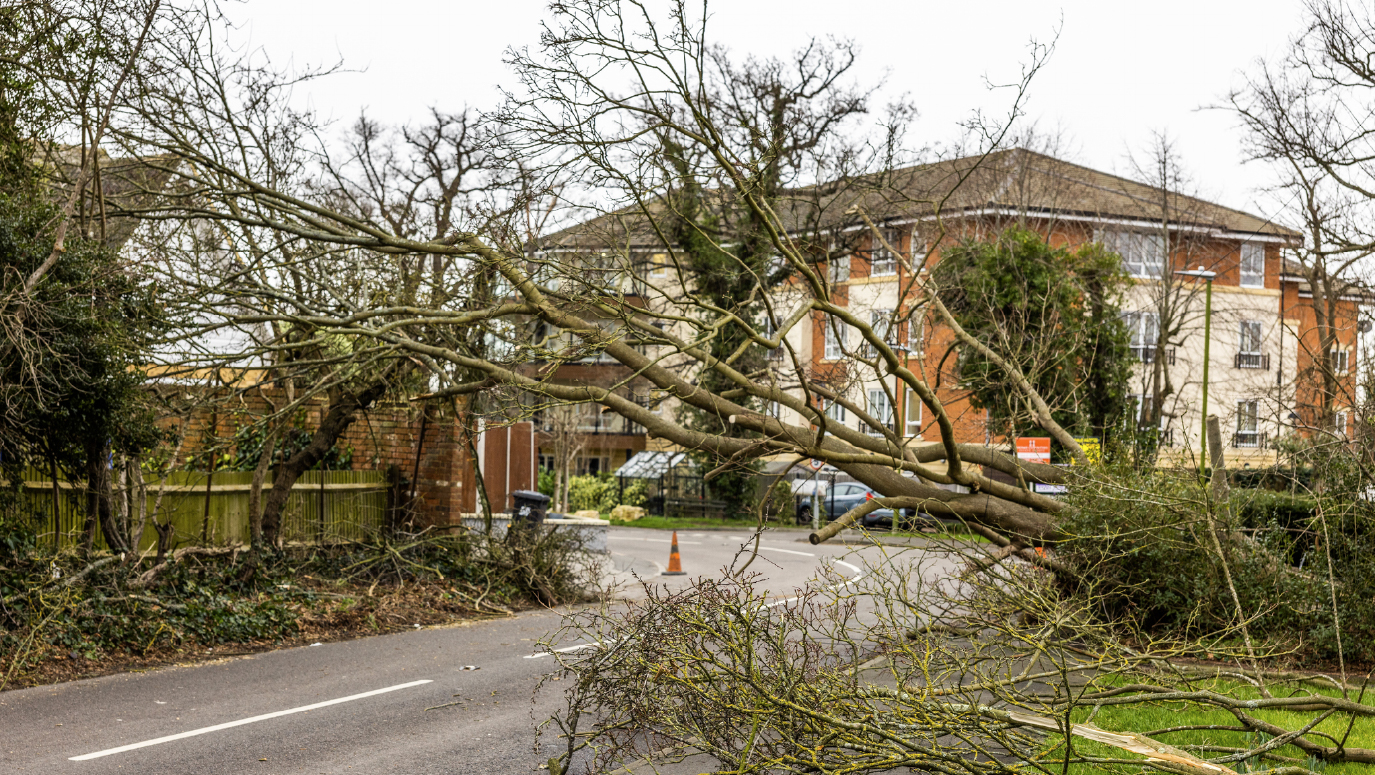These days, smart homes and their capabilities are constantly evolving.
From thermostat systems you can turn on via your phone before you leave the office, to voice-controlled sound systems embedded in every room, the home of the future is available right now.
The smart lock, a form of keyless door lock, has become a big part of the smart home movement. It’s seen as an integral part of intelligent home security systems.
But what are they and how do they work?
What is a smart door lock?
A smart lock is an electronic lock that can lock and unlock your front door, as well as interact with other devices.
Instead of using a key, smart locks work using a specific fob or keycard (similar to those used in hotels), a secure entry code, biometric recognition or through an app on your phone.
Once the fob or phone is near the lock, it automatically unlocks. There’s no need to rummage around in your bag for a lost door key or contort yourself into a bizarre position in a bid to unlock the door while carrying a child and your weekly shop.
One of the neat features of smart locks is that you can send temporary keys to people, giving them access to your home within a specific time frame.
Temporary keys are perfect if you need someone to pop in and feed the cat while you’re away - you message them a key and they can use their phone to open the lock. Then once you return, their key automatically becomes invalid.
Because of their smart nature, some smart locks will also connect to other devices in your home. If you have a smart heating system, some locks will automatically relay a message to the heating system when it detects you have left the house, and the thermostat will turn itself off or go into standby until you return.
Different types of smart lock
The smart lock market is growing, and there are numerous devices for you to choose from. Typically, they fall into one of the following four categories:
· Deadbolt smart locks – these replace your existing lock to allow smart lock functionality.
· Wi-Fi or Bluetooth smart locks – typically these are operated using an app on your phone.
· Biometric smart locks – locks that use fingerprints, voice activation or facial recognition.
· Keypad or touchscreen smart locks – operated using a secure PIN code.
Things to consider when choosing a smart lock
1) Wi-Fi or Bluetooth?
Your choice of system may be dictated by several factors, including the all-important price tag. But you should be aware of the implications of opting for a Wi-Fi system or a Bluetooth one – and remember that some systems use both.
- A Wi-Fi lock will usually have more features, such as letting you unlock a door remotely. However, because it’s connected to your home Wi-Fi network, it’s vulnerable to hacking or malicious attacks, like any internet-connected device.
- A Bluetooth lock, on the other hand, is potentially more secure, as it won’t be connected to the internet, and relies on authentication between the individual lock and the fob or phone. However, Bluetooth locks may have more limited functionality and a slight lag between presenting the fob and unlocking the door.
2) Alternative methods of entry
Obviously, you’d hope that your brand-new smart lock works smoothly. But what happens if there’s a technical glitch and you can’t gain entry to your property?
Sometimes, a simple reboot of your phone will be all it takes to kick things back into action. But, for peace of mind, you may prefer to choose a smart lock that offers an alternative mode of entry, such as a PIN number operated keypad or even a traditional key mechanism for if the fob or phone method isn’t working.
3) Ease of installation
Another thing to consider is how to fit your smart door lock.
Some of the locks on the market allow you to retrofit the smart lock over your existing lock, which should be a relatively straightforward procedure.
Other models will involve completely replacing the existing lock, a service that’s best carried out by a professional. Some locksmiths will be able to help, so check out the Master Locksmith Association website to find an MLA approved locksmith near you.
4) Smart home compatibility
If you’ve already got an Alexa, Google or Siri then it makes sense to choose a smart lock that is compatible with whichever system is already in use in your home. Not only will it make it easier for you to navigate, but it’ll also mean you can control your all your smart home functionality – from security systems to dimmer lights, to the thermostat – with ease.
5) Home insurance
As it stands, smart locks don’t affect your home insurance and, as long as they work in conjunction with a mortice deadlock, your front door will be considered just as secure as a standard key-operated lock.
6) Potential problems
Of course, smart locks aren’t without their problems. Things to be mindful of include the risk from hackers, making sure you know what to do if there’s a technical fault (see alternative methods of entry above) and keeping a close eye on battery life.
Just the beginning
While it’s important to be aware of potential hazards, it seems that smart locks are growing in popularity - representing a digital evolution in home security.
In terms of convenience, smart locks certainly appeal, leaving behind worries about lost keys, forgetting to lock up, granting access while you’re away and so on.
Plus, with so many different options available, there’s bound to be a smart solution that’s right for you.




